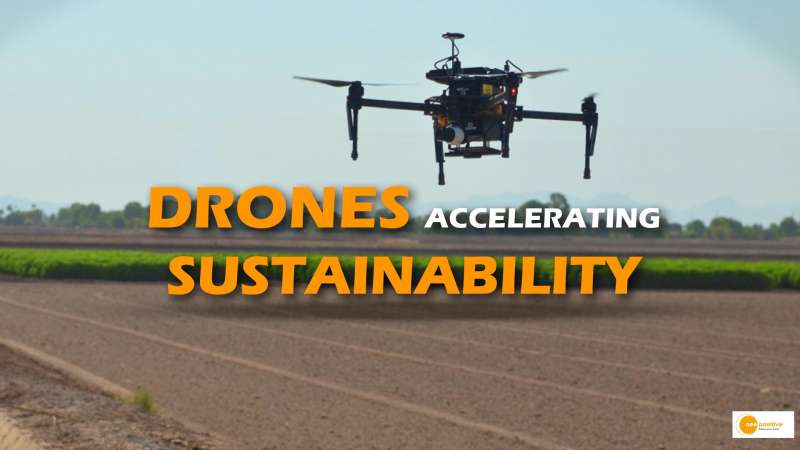

As wildfires ravage Canada, drones equipped with infrared imaging capabilities are aiding firefighting authorities in accurately assessing hotspots. Beyond their military reputation, drones are proving their versatility in sustainability strategies. Policymakers and corporations worldwide are recognizing the potential of specialized civilian drones or Unmanned Aerial Vehicles (UAVs) for environmental protection. With the ability to capture data, monitor air quality, facilitate afforestation, and more, drones offer valuable contributions to sustainability efforts.
Efficient and Versatile Data Gathering
Drones excel at capturing photographs, videos, and rich information, making them invaluable for large-scale sustainability initiatives. They enable real-time data analysis and can survey hazardous areas such as forest fires or offshore oil spills, providing critical information for informed decision-making.
Enabling Sustainable Agriculture
Drones play a vital role in driving sustainability in agriculture. They help optimize pesticide use, improving biodiversity and farm yield. Through precise data collection and measurements, farmers can assess baseline biodiversity, enhance flora and fauna diversity, and reduce the cost of measuring biodiversity levels.
Precision Agriculture for Optimal Resource Management
With data acquired from various sensors and GPS technologies, drones empower precision agriculture. They assist in targeted pesticide and nutrient spraying, reducing chemical leaching and environmental hazards. By ensuring efficient resource utilization, drones contribute to improved farm yield and reduced costs.
Monitoring Air Quality and Pollution
Authorities and organizations utilize drones to monitor air quality and measure pollution across regions. Drones aid in sampling air for methane pollution from dairy and meat industries, facilitating effective baselining, measurement, and compliance monitoring. Large-scale air sampling reduces costs and enables targeted pollution control efforts.
Enhancing Safety in Mining and Construction
Drones play a crucial role in mining and construction industries by conducting inspections and gathering data on ground conditions, erosion, and water bodies. They monitor equipment and assess real-time impacts on nearby areas, ensuring worker safety and preventing environmental hazards.
Scale and Efficiency in Afforestation Projects
Drones offer a significant advantage in large-scale afforestation projects. With their ability to sow seeds over vast areas quickly, drones contribute to reforesting economically denuded regions, such as deserts, more effectively than manual methods or seeder machines.


